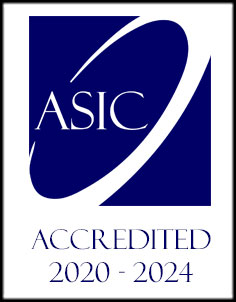Sustainable Development Goal 10 stresses the need to ‘facilitate orderly, safe, regular and responsible migration and mobility of people', including through 'the implementation of planned and well-managed migration policies’. Given the current trend of rising global migration patterns, in terms of refugees, displaced persons and economic migrants, it is imperative that policymakers and stakeholders enhance their capacity to effectively manage migration.
Course Overview
This programme will provide those involved in the management of migratory flows and the creation of migration policy with a clear understanding of the principles, dynamics and challenges that characterise strategic migration management.
Interactive learning will support participants’ understanding of key themes, such as irregular migration, border management and the relationship between globalisation and migration. By applying strategic planning tools and examining best practice case studies, participants will leave equipped to formulate and implement sustainable strategies for migration management, supported by a sound understanding of the global context and the costs and benefits of different policies.
A comprehensive analysis of the principles and mechanisms behind strategic migration management will be provided, with subjects to be discussed including:
- The impact of globalisation on international migration
- Regulating marriage migration
- Examining the relationship between migration and development
- Build strategies with regard to issues relating to forced migrants and refugees
- Regional and international cooperation in migration
- Migration policy and the management of migration
Experts in the field will lead this training through interactive workshops, lectures and best practice case studies, fostering innovation, creative learning and networking amongst peers.
Learning Outcomes
By the end of the course the delegates will be able to:
- Develop, implement and evaluate migration strategy
- Lead effective migration programmes
- Apply the key principles of strategic migration management to their work
- Examining the relationship between migration and development
How You Will Benefit
- Have the opportunity to gain an internationally recognised professional qualification
- Hear the latest insights, research and developments in strategic migration management from leading experts
- Network and share ideas with colleagues from around the world
- Enhance your skills and knowledge in migration management
Agenda
Day One
- - Theories of migration
- - Causes of migration
- - Forced, voluntary and reluctant migration
- - Data and information highlights re migration
- - Labour migrants, refugees and IDPs
- - Current most pressing issues re migration
- - Country level and international level perceptions
- - Politics and attitudes
- - Immigration and social media
Day Two
- - Inclusion policy and social cohesion, models for inclusion
- - Policies for migrant integration; political participation
- - Education; civic issues; naturalisation
- - Migration governance, challenges and gaps
- - Policy implications for migrants’ inclusion
- - Migration and health policies, education, child migration
- - State security and migration
- - Societal security and migration
- - New technologies, security and perceptions on migration
Day Three
- - Migration trends and numbers
- - Economy, climate, conflicts
- - Managing migration in a globalised world
- - UNGC for Migration, UNGC for Refugees, UNHCR
- - International cooperation on smuggling, trafficking, displacement
- - International Travel Regime and migration
- - Migrants’ sociocultural contributions
- - Migrants’ economic contributions Economic and social remittances, and foreign aid


What Learners Say
Planning Institute of Jamacia
“ The programme content was very relevant to my job responsibility. The trainer was very open to our different views and experiences and provided professional and expert guidance where required. She also made the sessions very interactive. “